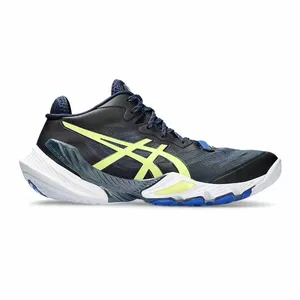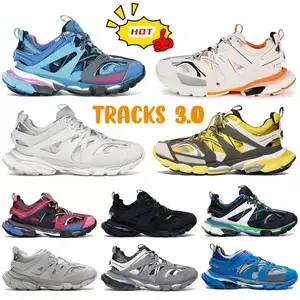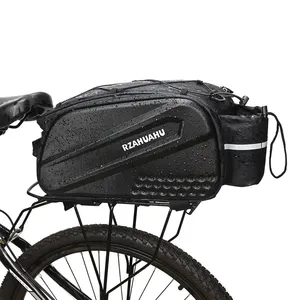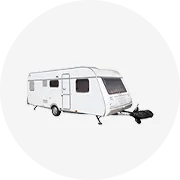








































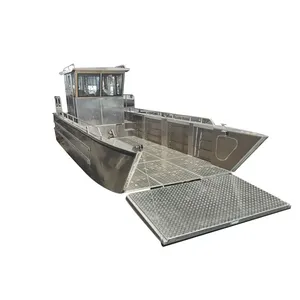























Top categories
About used cargo barge for sale
In an era where efficiency and cost-effectiveness are paramount, the cargo barge market is gaining momentum as a viable solution for intermodal freight transportation. With industries ranging from crude oil to food processing seeking more sustainable and economical shipping methods, the allure of used cargo barges is stronger than ever. This guide serves as a comprehensive resource for businesses looking to maximize their fleet through the strategic acquisition of used cargo barges. We'll navigate through the benefits, types available, key selection criteria, and the essential after-sale maintenance to ensure you make an informed investment in this buoyant sector of maritime transport.
Understanding the Cargo Barge Market
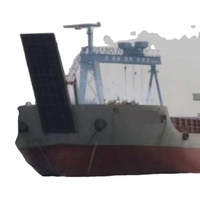
The cargo barge market is experiencing growth due to the increasing demand for intermodal freight transportation across various industries such as crude oil, petrochemicals, and food processing. The adoption of barge transportation is driven by its efficiency and ability to handle large volumes of cargo, making it a cost-effective alternative to road, rail, and air transport.
Technological advancements are shaping the barge industry, with the development of LNG-fired barges that offer an eco-friendly option over traditional diesel-powered barges. Innovations in navigation, communication, and smart technologies are enhancing the efficiency and safety of barge operations.
Market dynamics indicate a positive trajectory for the cargo barge sector, with significant opportunities in regions with developed waterways. The presence of numerous manufacturers and service providers in these areas supports the market's expansion, catering to the rising domestic and international trade demands.
Benefits of Buying Used Cargo Barges

Opting for used cargo barges presents a range of benefits, primarily in terms of cost efficiency. Barge transportation, by its nature, is already a cost-effective mode of shipping, with the ability to move large volumes of cargo over long distances using minimal fuel. This inherent efficiency translates into savings, especially when purchasing used barges, as they offer a lower entry price without compromising on the functionality or cargo capacity.
Furthermore, barges are recognized for their contribution to reducing congestion. The capacity of a single barge to carry significant amounts of cargo far surpasses that of road and rail alternatives. This not only implies fewer trips but also less wear and tear on infrastructure, potentially leading to lower maintenance costs for operators.
Environmental considerations also play a role in the benefits of buying used barges. With lower emissions per ton-mile compared to other transportation methods, barges offer a greener solution. This is an important factor for businesses aiming to reduce their carbon footprint while still maintaining efficient logistics.
Safety is another aspect where barges excel. Statistics show lower accident rates for barge transportation compared to road and rail, which can mean reduced risk and liability for businesses. By investing in used barges, companies can capitalize on these safety benefits without the higher costs associated with new equipment.
Types of Cargo Barges Available on Alibaba.com
The marketplace offers a diverse range of used cargo barges, catering to various transportation and logistical needs. Among the selection, buyers can find aluminum landing crafts, known for their durability and lightweight properties, which make them ideal for quick and efficient loading and unloading operations. For heavier cargo, there are self-propelled barges and deck cargo ships with substantial deadweight tonnage (DWT) capacities, suitable for bulk and heavy-duty transportation.
Options include rear drive deck barges that provide stability and ease of maneuverability, and LCT (Landing Craft Tank) type vessels that are versatile for carrying equipment and vehicles. For specialized tasks, mini dredging barges are available, perfect for maintenance dredging and marine construction projects. The selection extends to various sizes, from small barges for short and quick trips to larger vessels designed for long-haul maritime transport.
Prospective buyers can also consider the steel material tug work boats, which are robust and designed for towing and pulling operations. Each used barge on the platform has its unique features and capabilities, and buyers are encouraged to assess their specific requirements to find the most suitable used cargo barge. The availability of different types of barges on Alibaba.com provides a comprehensive solution for businesses looking to expand their fleet or replace older vessels with cost-effective alternatives.
Key Features to Consider When Selecting a Used Cargo Barge
When selecting a used cargo barge, key features to consider include the vessel's overall condition, deck capacity, and the presence of any specialized equipment. For instance, a barge like the 40 Man Accommodation barge, with its double raked 3/8 plate and hydraulic winches for spud raising and lowering, showcases the importance of structural integrity and operational efficiency. Similarly, the 330ft Deck Bin Wall Barge, reported in good condition, with machinery spaces below deck, emphasizes the need for assessing the barge's suitability for specific cargo types. The 360ft Deck Barge's deadweight and load line displacement figures are crucial for understanding its carrying capacity. Additionally, features such as mooring bollards, towing brackets, and deck strength are significant when considering a barge's utility for heavy-duty operations. It's essential to evaluate these features against the intended use to ensure the barge can meet the demands of various marine transportation and construction projects.
Assessing the Quality of Used Cargo Barges

When considering the acquisition of a used cargo barge, assessing its quality is paramount. Key factors include the structural condition, which should be evaluated by a qualified person. Inspections should be thorough, documented, and the most recent reports made available, ensuring the vessel meets safety standards.
It's crucial to verify that the barge has been maintained in a seaworthy condition, capable of withstanding the sea conditions it will encounter during its service. This includes checking for watertight compartments, ensuring doors and hatches are fully functional and marked for emergency exits.
Fuel systems also demand attention; they should have shutoff valves at both the tank connection and engine end, and any carburetors should be equipped with backfire traps or flame arrestors. Additionally, decks should be free of projection and tripping hazards, and cargo must be secured, especially in rough weather conditions.
Lastly, emergency preparedness is a critical aspect of a barge's quality. Adequate emergency cutting equipment, signal devices, and general alarm systems should be in place and operational. Smoke alarms and CO monitors are required for enclosed spaces, ensuring the safety of the crew and compliance with regulations.
Navigating the Marketplace for the Best Deals
Navigating the marketplace for the best deals on used cargo barges involves understanding the variety and scope of options available. Prospective buyers can explore a range of used barges, from small-sized vessels to large self-propelled deck barges and cutter suction dredgers. Each listing typically provides detailed specifications, including the size, capacity, and features of the barge, allowing buyers to compare different models and find one that suits their specific needs.
While searching for barges, it's important to consider the type of cargo and the conditions in which the barge will operate. The platform's listings include barges designed for different purposes, such as river cleaning, sand dredging, and heavy cargo transportation. The platform's user-friendly interface enables filtering options by various parameters, which streamlines the search process.
Buyers should pay attention to the descriptions provided to gauge the condition and history of the used barge. It's advisable to reach out for more information on maintenance records, previous usage, and any refurbishments the barge has undergone. This due diligence is crucial in ensuring the quality and longevity of the purchase.
Making the Purchase: Steps and Tips
When embarking on the journey of purchasing a used cargo barge, the process involves several critical steps. Initially, one must delve into the market with a clear understanding of the type of barge that aligns with their needs, whether it's a historic barge with character or a more modern replica. It's essential to assess the onboard systems, ensuring they meet current needs and consider potential modifications. The condition of the barge, especially the hull's integrity and the state of repair, is paramount. Buyers should be prepared for the reality that even with a well-maintained barge, the resale value is subject to market conditions and may not equate to the purchase price.
The decision-making process doesn't end with selecting the right barge. Prospective buyers must navigate the complexities of registration, insurance, and licensing. It's advisable to join forums or associations where experienced owners share insights, which can be invaluable in avoiding common pitfalls. When ready to make a purchase, thorough research can lead to finding the best deals. However, one should approach the transaction with a cautious mindset, understanding that the true cost of ownership includes maintenance and potential modifications.
After-Sale Considerations: Maintenance and Upkeep
After purchasing a used cargo barge, maintaining its condition is crucial for ensuring safety, efficiency, and longevity. Regular check-ups and maintenance practices are indispensable. Minor issues, such as small leaks, should be addressed promptly to prevent extensive damage. It's essential to establish a routine maintenance culture, ensuring consistent checks and preserving the vessel's condition over time.
Corrosion is a significant challenge for marine vessels, including used cargo barges. Understanding and combating corrosion involves selecting materials resistant to marine environments, applying protective coatings, and employing cathodic protection methods. Regular cleaning and inspections are vital to detect early signs of corrosion and intervene timely.
Beyond corrosion, other essential maintenance practices include ensuring the watertight integrity of the vessel by checking seals and bilge pumps. Propulsion and steering systems require regular oil changes and propeller inspections to maintain performance. Electrical systems demand meticulous attention, with routine checks for loose connections and ensuring generators and batteries are in optimal condition.
Finally, a well-trained crew is the most versatile defense against marine challenges. Regular training and drills are paramount for efficient operations and risk minimization. A knowledgeable crew enhances vessel performance and ensures the proper handling of maintenance tasks, contributing to the barge's overall safety and operational readiness.
Conclusion
Embarking on the acquisition of a used cargo barge is a strategic move that can yield significant cost savings and operational efficiencies for businesses. This guide has traversed the critical aspects of the buying process, from understanding the diverse market and the environmental and safety benefits of barge transportation to selecting the right type of vessel. We've also delved into the importance of assessing a barge's quality and the steps involved in making a well-informed purchase. Post-sale, the emphasis shifts to diligent maintenance and crew training, which are indispensable for the vessel's longevity and performance. By considering these factors, businesses can confidently navigate the waters of the used cargo barge market, ensuring their fleet is not only robust and reliable but also aligned with their logistical needs and environmental responsibilities.
